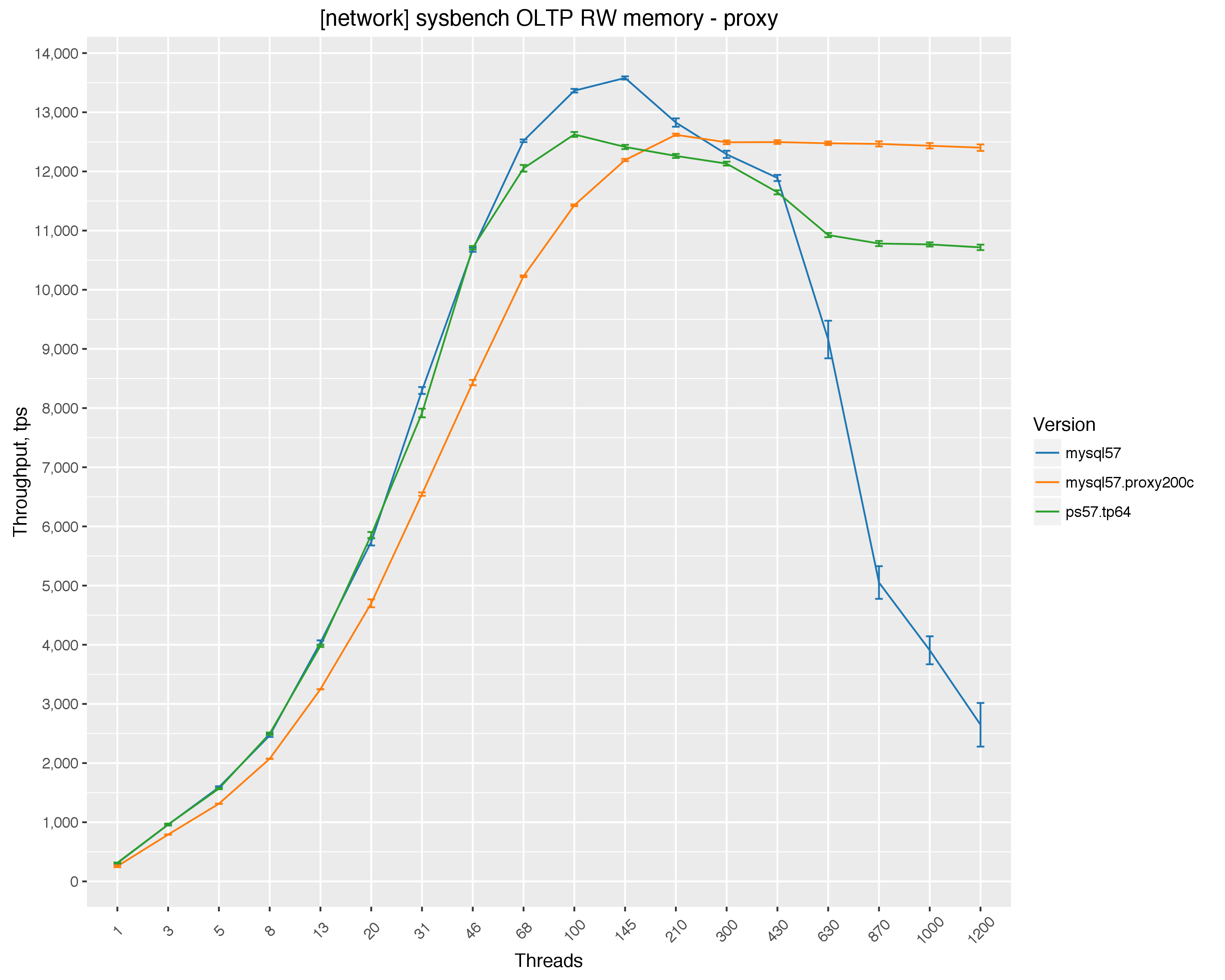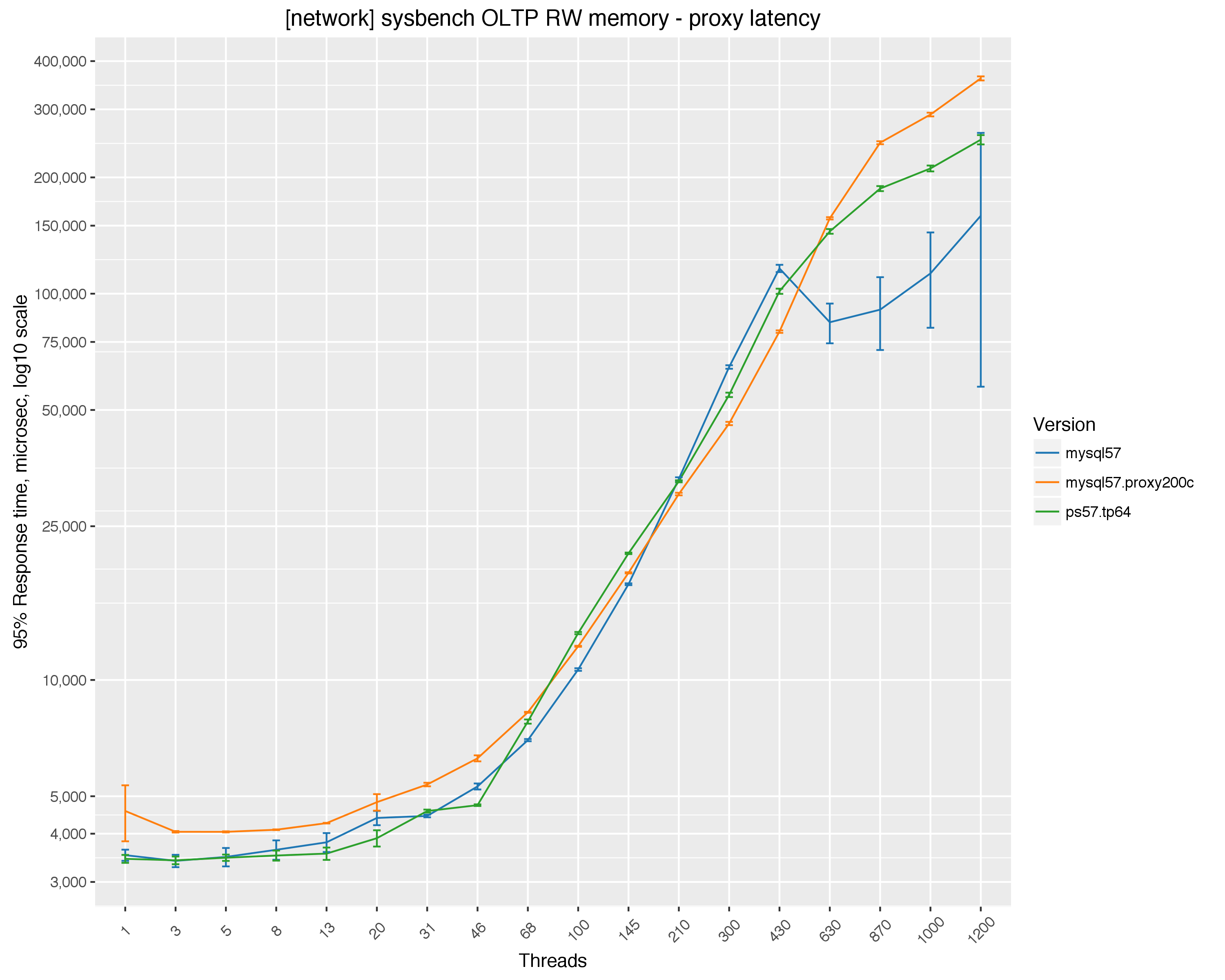by Sarang Nagmote
Category - Databases
More Information & Updates Available at: http://insightanalytics.co.in
In this blog post, we’ll discuss fixing MySQL scalability problems using either ProxySQL or thread pool.
In the previous post, I showed that even MySQL 5.7 in read-write workloads is not able to maintain throughput. Oracle’s recommendation to play black magic with innodb_thread_concurrency and innodb_spin_wait_delay doesn’t always help. We need a different solution to deal with this scaling problem.
All the conditions are the same as in my previous run, but I will use:
- ProxySQL limited to 200 connections to MySQL. ProxySQL has a capability to multiplex incoming connections; with this setting, even with 1000 connections to the proxy, it will maintain only 200 connections to MySQL.
- Percona Server with enabled thread pool, and a thread pool size of 64
You can see final results here:
There are good and bad sides for both solutions. With ProxySQL, there is a visible overhead on lower numbers of threads, but it keeps very stable throughput after 200 threads.
With Percona Server thread pool, there is little-to-no overhead if the number of threads is less than thread pool size, but after 200 threads it falls behind ProxySQL.
Here is the chart with response times:
I would say the correct solution depends on your setup:
- If you already use or plan to use ProxySQL, you may use it to prevent MySQL from saturation
- If you use Percona Server, you might consider trying to adjust the thread pool



No comments:
Post a Comment